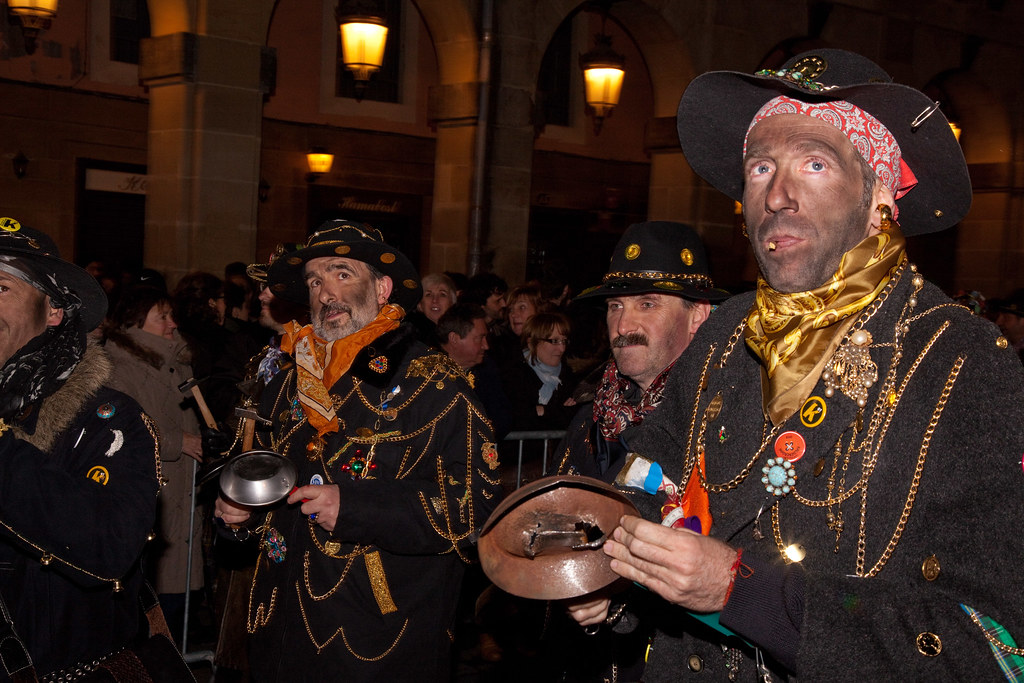Manufacture of arms and Basque responsibility
- Under the title Beyond the Frontiers of Consciousness, the philosopher Günther Anders ordered the launch of an atomic bomb in Hiroshima, an exchange of letters with former soldier Claude Eatherly. Eatherly was in the psychiatric, with the awareness of guilt, despite being a hero for many in the United States.

For Günther Anders, despite being one of those responsible for this monstrosity, he was also a victim. Although the Administration regarded him as mentally ill and closed him, he was healthier than his environment, because he was aware of his guilt and did not want to forget it. On the contrary, the former soldiers who survived the barbarism committed and lived normally were in the midst of that healthy society. Joe Stibory, a member of the bombing crew Enola Gay, who launched the bomb, said lightly: “It was no more than a bomb, but it was bigger.”
This book has interesting elements of reflection, which is current and complete right here. Although atomic bombs have not been released from the Basque Country, the destruction of some peoples is doomed. As has been denounced in the Eusko Label War Conference held at the beginning of the year in Vitoria-Gasteiz, here the arms industry is very present, although in an interview in Radio Euskadi Iñigo Urkullu tries to limit itself to hunting weapons. For some, the Basque Armero of long tradition, a source of pride, is maintained, with more than 100 companies with exclusively military or civil production (see on the web These wars are ours). Companies such as SAPA, Aernnova, ITP or Sener continue to work on the financing of many banks (BBVA, Caixabank, Caja Rural, Kutxabank…) and on obtaining grants and prizes from public institutions (mainly the Basque Government, but not only). Meanwhile, thousands of kilometres away, the bombs that have landed in the port of Bilbao until last year fall into Yemen steadily, Eurofighter with Basque parts bombard Yemen and other peoples or the Zionist aeronautical sector that has collaborations with companies here allows the cleaning of the Palestinians. Likewise, the research and the agreements signed in Basque public and private universities find their application in this industry of death. The blood of the victims of other peoples does not physically salve the Basque Land, but many of the companies, institutions and workers here are stained with death, mutilation and drama.
History has also shown us that capitalism does not work in a free market and that capitalists have the coverage of state institutions for their activities.
In fact, the death industry is a long chain in which the involvement of many agents is needed, beyond the entrepreneurs who choose the products of destruction as the way of business. For them it is an unscrupulous business, which must be tried to cover, but an empty business, in which ethics is nothing more than an obstacle to competitiveness. Asking for that business to be abandoned in the name of humanist values is as pointless as asking for the predator to become a herbivore.
History has also shown us that capitalism does not work in a free market and that capitalists have the coverage of state institutions for their activities. The public money received by the Basque arms industry and cooperation with public research centres demonstrate the responsibility of the institutions. In addition to defending the interests of the dominant bourgeois class, it seems that it is up to them to defend the interests of the rest of the citizens, it would not be wrong to call for the interests of the people of other peoples to be defended, even if the apparatus manufactured here have a humble right not to be killed… Even though they pay nothing here, they have the right to life in their peoples.
On the other hand, we must not forget that workers are an essential part of this chain in the design of weapons, in the different stages of production, in logistics or in the transport of weapons. Without these links, this spiral of death would no longer destroy peoples and people. Anders explained that too often we do not link our initiatives and consequences, and warned that it is a question of diluting the work of each of them and putting an end to the burden of responsibility for the consequences. There are different escape routes to try to unravel the worker’s consciousness: leaving aside the effect of the action (such as the rifles without projectiles in the firing plattons, “perhaps the bombs I’ve produced have not affected anyone… I will never know”), that if one did not, that he is merely doing a job, that fulfills the orders (“transmission belts”, that transfer all responsibility to another) or that he should feed himself.
We must not forget that workers are also an essential part of this chain in the design of weapons, in the various stages of production, in logistics or in the transport of weapons. Without these links, this spiral of death would no longer destroy peoples and people.
But in addition to direct participants, as part of a society, we all have a responsibility. The complicity of the German population in the face of the massacres of some Third Reich collectivities or the “not wanting to believe” of much of the middle class when in Argentina 30,000 people were eliminated, what could be intuited would not be so much. Closer together, the attitude of denial or decline in the face of thousands of cases of torture in recent decades has also been widespread among many here. We must ask ourselves whether we are not doing something similar with the label industry. We are concerned, first of all, about knowing and publicising what is produced here and what it is used for, avoiding comfortable non-vision positions. The anti-militarist movement has communicated this to us for a long time with concrete data. Beyond that, it is necessary to put pressure on the institutions so that they do not receive any public impetus from this type of industry and become companies that do not have military uses. Let them not sell and let us not buy this cruelty in the name of the economy or jobs. We must also shake up this idea of being a society of solidarity that extends from the Basque institutions themselves and that penetrates us in such an uncritical manner, dismantling the self-indulgence of reassurance. Many grants and cooperation projects from institutions that are nothing but solidarity marketing cannot justify the harsh reality of the production and export of Basque weapons. As long as we are fair or unjust accomplices to the devastation of other peoples, while governments and institutions here support the death market, we do not differ too much from the American society in which the bombers of Hiroshima had understanding and praise.
Bidali zure iritzi artikuluak iritzia@argia.eus helbide elektronikora
ARGIAk ez du zertan bat etorri artikuluen edukiarekin. Idatzien gehienezko luzera 4.500 karakterekoa da (espazioak barne). Idazkera aldetik gutxieneko zuzentasun bat beharrezkoa da: batetik, ARGIAk ezin du hartu zuzenketa sakona egiteko lanik; bestetik, egitekotan edukia nahi gabe aldatzeko arriskua dago. ARGIAk azaleko zuzenketak edo moldaketak egingo dizkie artikuluei, behar izanez gero.
I don't want my daughter disguising herself as a Gypsy in the caldereros. I don’t want Gypsy children at my daughter’s school to dress up as Gypsies in caldereros. Because being a gypsy is not a disguise. Because being a gypsy is not a party that takes place once a year, with... [+]
The road goes by steps, and I learned a little while ago that it seems to have already begun. But people also want to learn to fill that sentence with content. Alone we could achieve little, maybe even resignation as soon as we started. Gathering huge crowds can also complicate... [+]
Ez zuen egoki jokatu, neurriak hartu behar ziren, bestela, ez dugu ikasten. Itxuraz, ez zen ohartzen egindakoaren inpaktuaz, normal jarraitzen zuen, batzuetan, ingurukoek baino itxura zoriontsuagoz. Gainera, altuegi hitz egiten du, hori ez zaio inori gustatzen. Darabiltzan... [+]
The Department of Education doesn't understand why public employees have gone on strike. He's got to ask the LAB Syndicate. This union signed an agreement with the department in April 2023. Two years later they have also called for a strike because, unlike the previous ones, the... [+]
Erretiratu berri den lankide-ohi baten omenez, Historiako irakaslea. Bejondeizula!
Hezkuntza-legeek azpimarratzen dute zein garrantzitsua den ikasleengan pentsamendu kritikoa sustatzea. Baina irakasle-klaustroak, garai batean ideien eztabaidarako eta proposamenak... [+]
The liberal democracy of the Western countries has a growing appearance of a minimalist democracy. At the heart of the definition would be respect for changes in government through elections. The authoritarian variant of this was called competitive authoritarianism by political... [+]
Zutabe hau idazten nengoela, gaia aldatu behar izan dut, nire arreta osoa harrapatu dutelako Trumpen muga-zergek. Azalpen gutxi beharko duzue, leku guztietan da berria, Txinako produktuei %10eko zerga eta Kanadako eta Mexikoko produktuei %25eko muga-zergak jarri dizkie. Trumpek... [+]
This wedge that the announcement on the radio Euskadi to replace the bathtub with a shower encourages the commencement of the works in the bathroom of the house. A simple work, a small investiture and a great change are announced. There has been a shift in toilet trends and a... [+]
The year 2025 will lead to a general policy of establishing shorter working weeks, bringing low costs for new hires for companies and an effective direction of change in labour relations.
With the aim of complying with the Spanish government agreement, the reform to shorten the... [+]
I received your e-mail in personal mail on the strike portals. At first, like many others, I thought it was to let you know what options we have in the face of the strike. But no, the e-mail received was a political and communicative movement against the strike.
I will confess... [+]
This weekend I've been thinking about the word 'aesthetic' in relation to a phrase said by a friend: “This work is aesthetic.” I have studied the etymology of the word aesthetic, it seems that its meaning was originally perceived through the senses, and it was later associated... [+]
The other day in Bilbao, I met a friend at the Bira bar. We were very happy at the Tar and I said: “Of course, since you’re Guipúzcoa, hahahaha.” And he insisted that he was not Guipuzcoan. Without me understanding it, I kept saying, “Ah! Is it not? You were born in New... [+]




















